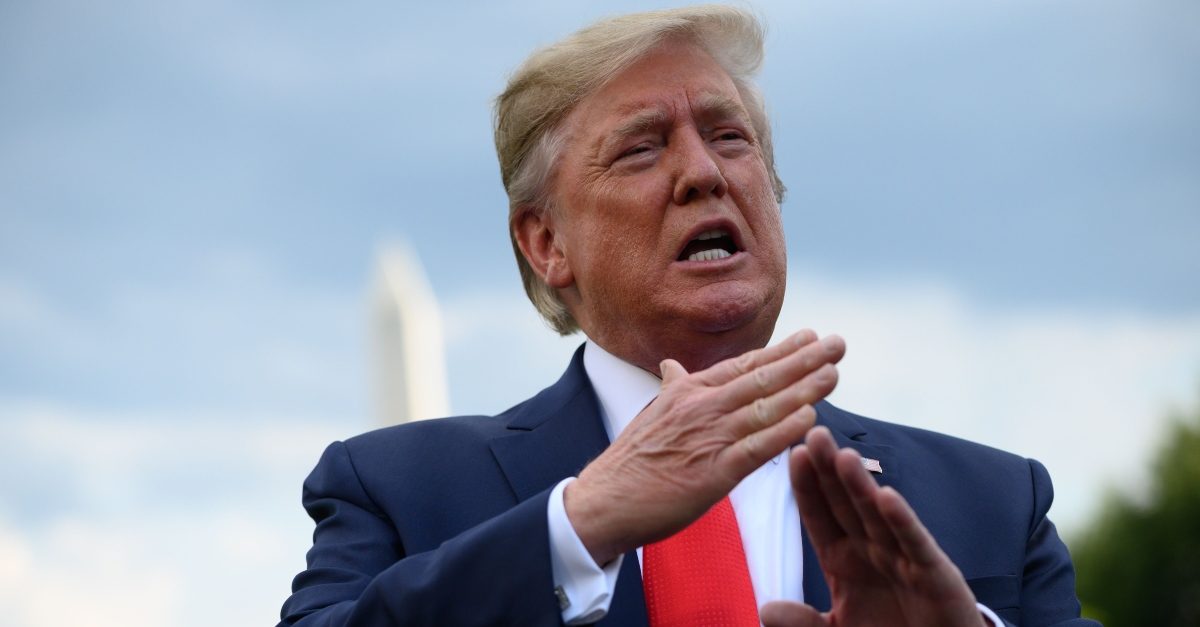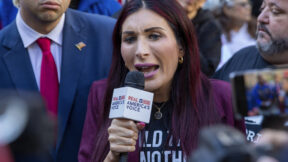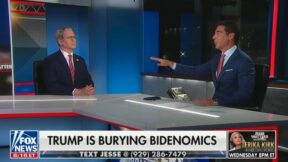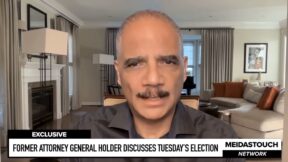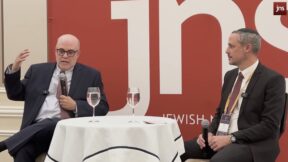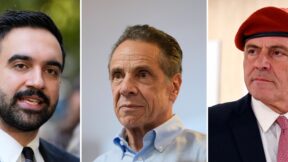Trump Doubles Down: Whistleblower Has a ‘Conflict of Interest’ and ‘Should Be Exposed’
President Donald Trump called for the public outing and proper questioning of the anonymous whistleblower whose complaint about contacts between Trump and the Ukrainian president has led to an impeachment inquiry threatening the presidency.
A “whistleblower” is defined, according to Merriam-Webster, as “an employee who brings wrongdoing by an employer or other employees to the attention of a government or law enforcement agency and who is commonly vested by statute with rights and remedies for retaliation.”
Trump said plainly in a Wednesday morning tweet that the facts put forth by the individual in question “have been so incorrect” about his phone call with the Ukrainian president, before alleging “conflict of interest and involvement with a Democrat Candidate.” He then said “that he or she should be exposed and questioned properly.”
The Whistleblower’s facts have been so incorrect about my “no pressure” conversation with the Ukrainian President, and now the conflict of interest and involvement with a Democrat Candidate, that he or she should be exposed and questioned properly. This is no Whistleblower…..
— Donald J. Trump (@realDonaldTrump) October 9, 2019
…..The Whistleblower’s lawyer is a big Democrat. The Whistleblower has ties to one of my DEMOCRAT OPPONENTS. Why does the ICIG allow this scam to continue?
— Donald J. Trump (@realDonaldTrump) October 9, 2019
Trump has previously suggested that the whistleblower is a “spy” and has consistently called for his or her identity to be revealed, which counter the Whistleblower Act passed in 1989, which is explained:
The Whistleblower Protection Act of 1989, 5 U.S.C. 2302(b)(8)-(9), Pub.L. 101-12 as amended, is a United States federal law that protects federal whistleblowers who work for the government and report the possible existence of an activity constituting a violation of law, rules, or regulations, or mismanagement, gross waste of funds, abuse of authority or a substantial and specific danger to public health and safety. A federal agency violates the Whistleblower Protection Act if agency authorities take (or threaten to take) retaliatory personnel action against any employee or applicant because of disclosure of information by that employee or applicant.
Note the last clause that “a federal agency violates the Whistleblower Protection Act if agency authorities take (or threaten to take) retaliatory personnel action against any employee or applicant because of disclosure of information by that employee or applicant.”
Trump appears to not just only flout accepted decorum in such investigations, but even may have crossed the line of “retaliatory personnel action” by his call for outing the individual who filed the complaint and put their safety at risk.
